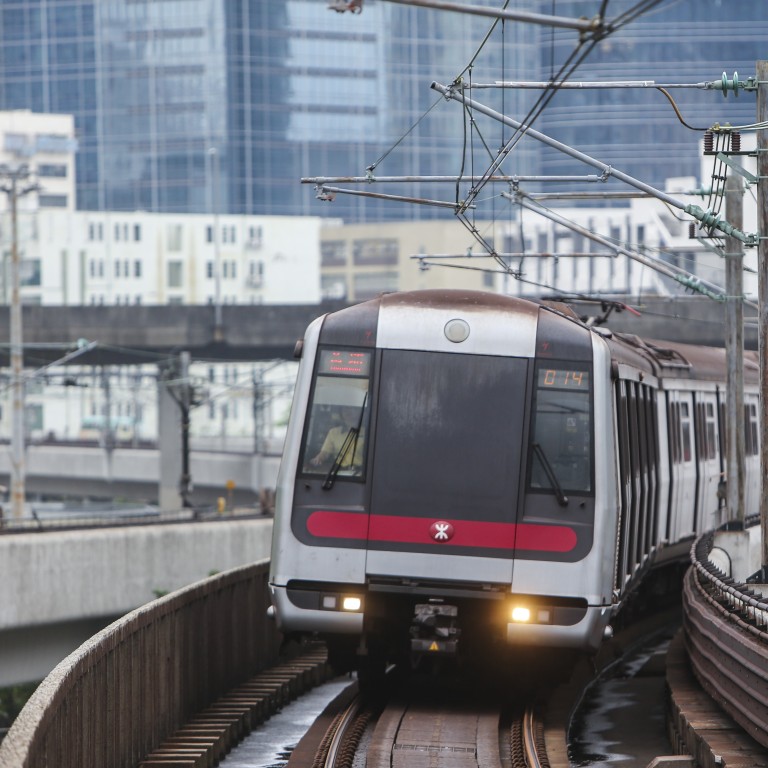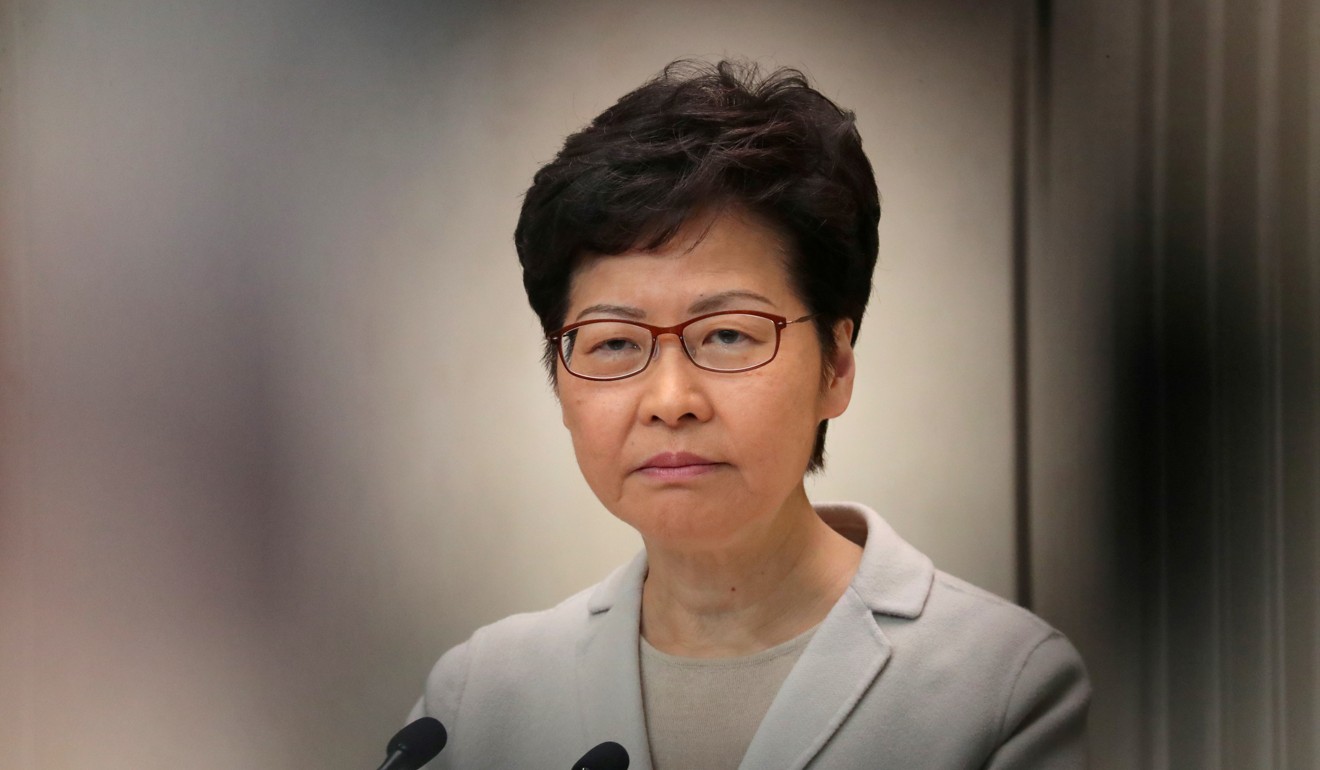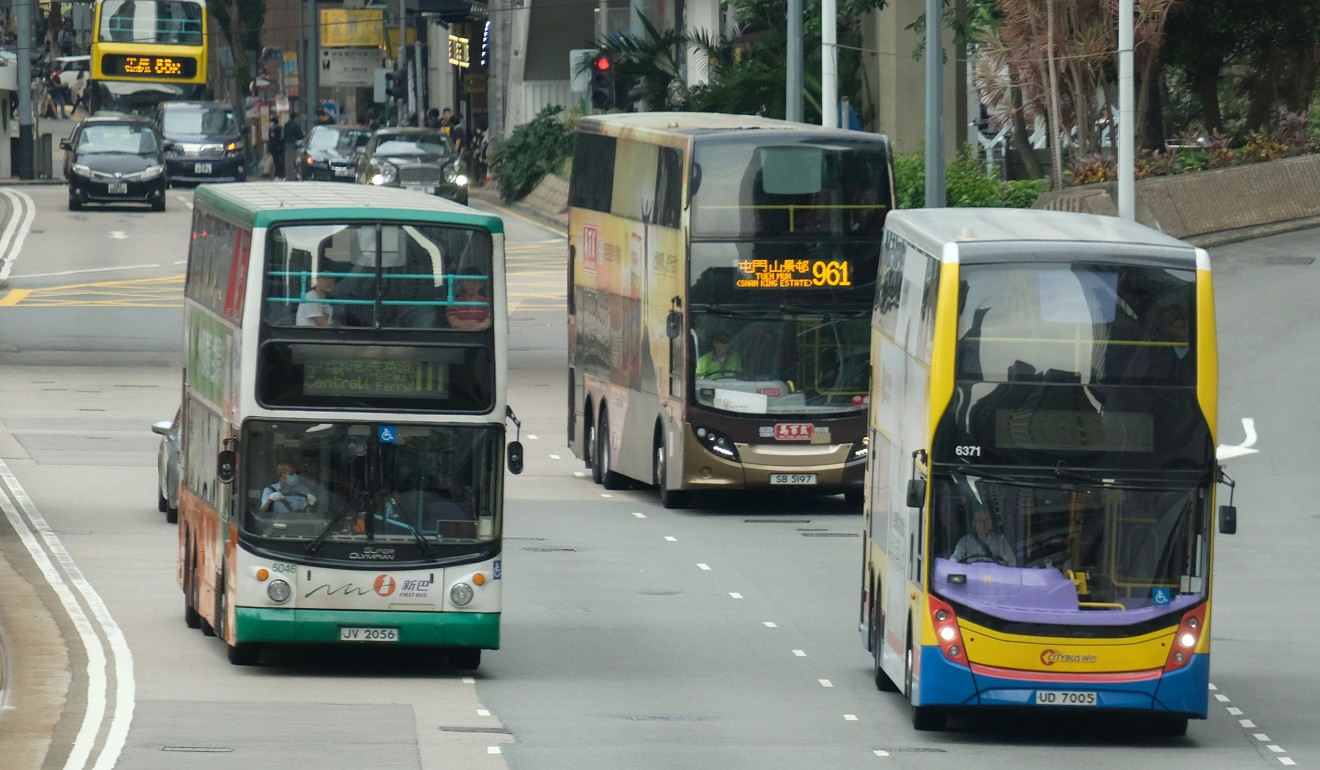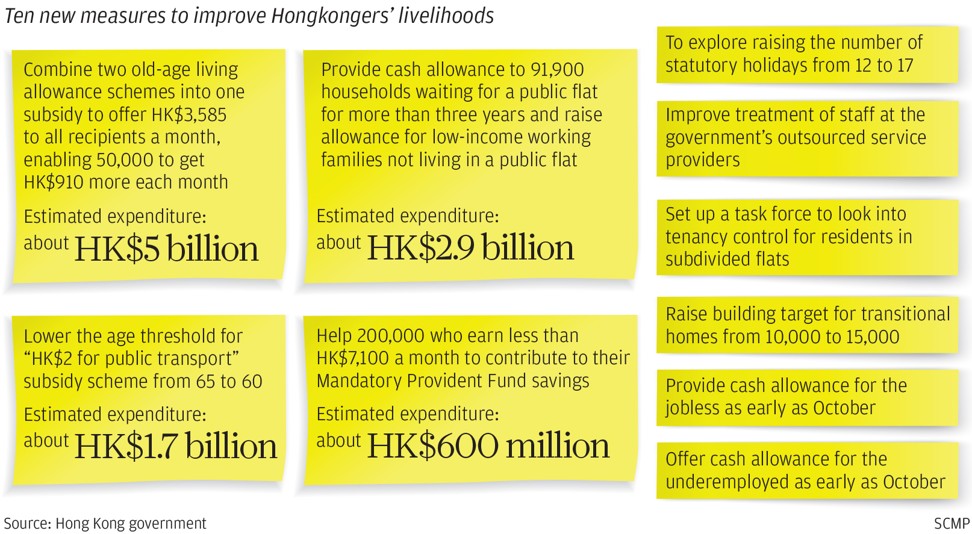
U-turn on elderly travel among Hong Kong leader Carrie Lam’s HK$10 billion welfare package
- City chief attributes the series of apparent policy reversals to a ‘breakthrough’ in administration’s thinking
- Other measures include more statutory public holidays and housing subsidies for people lingering on waiting list for a government flat
Hong Kong’s leader has unveiled a HK$10 billion-a-year welfare package expected to benefit more than a million people, saying she aims to ease the burden on the city’s poor and elderly, while attributing the series of apparent U-turns it contained to a “breakthrough” in government thinking.
In one reversal, Carrie Lam Cheng Yuet-ngor plans to lower the age threshold for a scheme under which the elderly use public transport for just HK$2 per ride, from 65 to 60, at a projected annual cost of HK$1.7 billion.
There will also be housing subsidies for people who have waited for a public flat for more than three years, while – in another change of direction – tenancy controls will come in for subdivided units.
Lam was understood to have worked on the 10-measure package without consulting her cabinet, whose members were only briefed on them at an Executive Council meeting hours before they were announced. And nor was the Welfare Bureau involved, according to a source, who described the policies as “all being top-down”.

The announcement came days after Lam met Beijing’s new envoy to Hong Kong, Luo Huining, who asked her to redouble her efforts to improve the economy and people’s livelihoods, among other things.
Outlining the package at a press conference on Tuesday, Lam said the latest proposals aimed to ease the hardships of the poor, though defending her administration’s prior record on poverty by citing an increase in social welfare spending from HK$65.3 billion in 2017 to HK$84.3 billion in 2019-20.
She said the government would look into tenancy controls for subdivided units, the so-called shoebox flats that are commonly the last housing resort for the needy.
There will also be housing subsidies for those who have waited for a public flat for more than three years.
I am sure you will be able to find our previous different positions on some of these measures, from expressing reservations to perhaps resisting proposals or aspirations from the political parties or members of the public. But we are having a sort of breakthrough in our thinking that we should be listening more to the people
The government had previously opposed that policy, as well as resisting calls to lower the age threshold for the travel scheme by citing financial implications.
Acknowledging the U-turns, Lam said: “I am sure you will be able to find our previous different positions on some of these measures, from expressing reservations to perhaps resisting proposals or aspirations from the political parties or members of the public.
“But we are having a sort of breakthrough in our thinking that we should be listening more to the people.”
Economists take aim at Carrie Lam’s ‘redundant’ relief measures
However, she said demands by anti-government protesters, including an amnesty for those arrested over the last seven months of unrest, would not be met with the same flexibility.
“Any political demand that violates the rule of law will not be accepted by us,” she reiterated.
Other major measures announced on Tuesday included a gradual increase in the number of statutory holidays to 17, benefiting blue-collar workers who only get 12 public holidays off each year, while white-collar workers generally get more. The city has 17 public holidays a year, but only 12 of those are currently statutory, meaning employers can choose not to give their staff the day off on the other five.
There will also be cash allowances for up to three months to low-income workers who lose their jobs or are underemployed.
And workers who do not earn enough to pay into their Mandatory Provident Fund savings – the threshold is currently HK$7,100 a month – will get contributions to their accounts from the government.
Hong Kong lawyers group offers Lam protest inquiry road map
“It’s a very preliminary estimate, but the new measures on livelihood issues this time are expected to invest HK$10 billion recurrent expenditure,” she said. “More than 1 million people will benefit.”
She said some of the measures would have been touched on in her policy address last October, had the recent unrest not been dominating the administration’s agenda. But the city chief insisted the measures were not intended to placate anti-government protesters, or to boost support for the pro-establishment camp, some of whose members had previously floated some of the proposals in her package.
The opposition Civic Party dismissed the relief package as a “two-dollar painkiller” that would not solve the political crisis.

But political observer Chan Wai-keung, from the Hong Kong Community College of Polytechnic University, believed the measures could help boost support for the pro-government camp ahead of legislative elections in September.
“The camp suffered a humiliating defeat in the district council elections. One observation was that they were losing support even in some so-called grass-roots districts. They need to consolidate their support base. That can explain why the measures mainly aim at helping the elderly, and lower-income groups, but leave out the middle class, which is seen as more pro-pan-democrat.”
The pro-government Business and Professionals Alliance said it was pleased the government had responded to its proposal of extending cheap travel to the over-60s. But it called for thorough a consultation on the plan for more statutory holidays.
Also on Tuesday, the government launched a HK$450 million programme to help needy families switch to digital TV. It plans to pull the plug on analogue services by the end of this year.
Additional reporting by Tony Cheung




